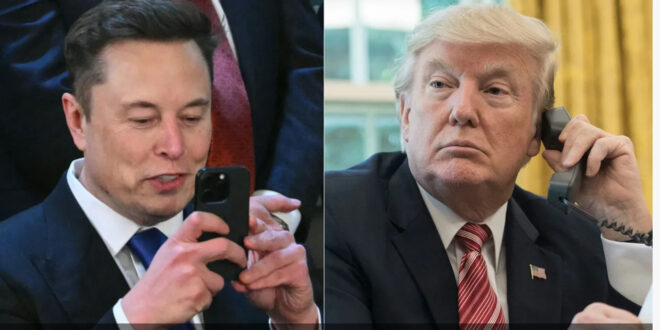Trump vs. Musk: Clash of the Titans
By: Dr. Hossam Badrawi
In one of the most controversial confrontations on the American stage, relations between current U.S. President Donald Trump and global tech pioneer Elon Musk are escalating to unprecedented levels. From trading criticisms to direct threats, the clash between high politics and borderless technology is no longer a mere possibility—it is a reality unfolding before the eyes of the world.
From Alliance to Friction
Despite Musk’s previous support for Trump and the Republican party, tensions began to surface when Musk publicly criticized a major economic project signed by Trump during his new term, calling it “economically unethical.” This prompted a strong response from the President, who accused Musk of “fickle loyalty,” hinting at the possibility of reevaluating federal contracts granted to Musk’s companies such as SpaceX and Starlink.
Platform X in the Crosshairs
Trump, who uses his platform Truth Social as his primary communication channel, began to suggest that X (formerly Twitter and now owned by Musk) is being used for “non-national” purposes, hinting at potential new regulatory measures. Such a move could reignite the ongoing debate over free speech and the limits of digital oversight.
In return, Musk appeared cautious but did not hide his frustration, hinting at the possibility of founding a new political party aimed at “the rational center”—a veiled criticism of the growing imbalance within both traditional parties.
Who Holds the Power in This Confrontation?
In terms of official authority, Trump undoubtedly possesses the tools of the state—from the Department of Defense to economic legislation. However, Musk, as the head of some of the world’s largest companies in space, energy, and social media, holds significant power: public influence, the ability to shape public opinion, and even control over much of the world’s digital infrastructure.
So Who Pays the Price?
- Elon Musk may lose major government privileges and face regulatory sanctions that restrict his economic activities.
- Donald Trump may lose support from younger and independent voters who see Musk as a symbol of freedom and innovation.
- The U.S. economy itself could be impacted, particularly given that companies like Tesla and SpaceX constitute critical technological infrastructure for the nation.
This is an unprecedented scene. For the first time in modern American history, an elected president stands in open confrontation with a global icon of the tech economy. Will the dispute end in a behind-the-scenes settlement? Or are we witnessing a growing rift that may reshape the relationship between government and the market—between politics and artificial intelligence?
The stage is set… and the world is watching.
 Dr. Hossam Badrawi Official Website
Dr. Hossam Badrawi Official Website


